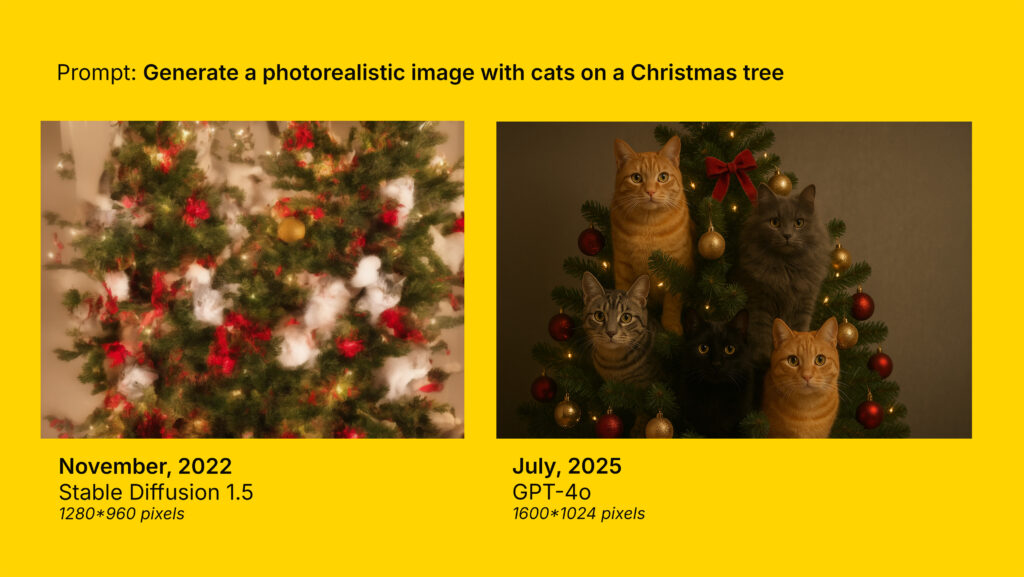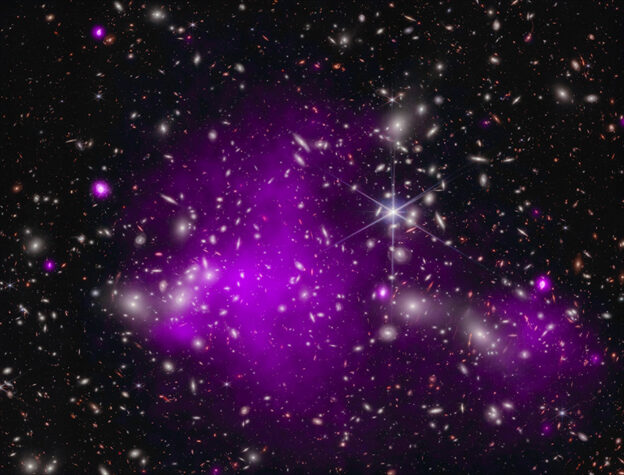The Point of It All: AI, the End of Work, and the Meaning of Being Human
This is just what I think, shaped by the world as I see it as of now, not declarations of truth, and will be outdated as time goes on.
The Big Question
AI had advanced a lot in the past 2-3 years, with LLM (Large language model)s becoming more popular and powerful, everything now relates to AI in some way. In this time of ever accelerating AI technologies, and global uncertainty, many of us find ourselves asking a deceptively simple question:
What is the point?
If artificial intelligence will soon outperform us in all possible way, if automation will displace millions of jobs, and if the universe itself is destined to die, then what are humans really here for? What role do we play in a future ruled by machines or, ultimately, entropy?
This article isn’t here to give any easy answers. But to explore some of the ideas that might help us navigate a future filled with both vast possibility and very deep uncertainty.
The Rise of the Machines
AI Can Do It Better
We live in a moment where artificial intelligence is no longer a science fiction curiosity, it’s a real, accelerating force. OpenAI’s ChatGPT, Google’s Gemini, autonomous vehicles, robot surgeons, AI lawyers, and finance algorithms are already outperforming humans in areas once considered untouchable.
And to be honest, from a capitalist perspective, AI is the perfect worker.
- Computer never sleeps.
- Computer doesn’t get sick (typically, but if one breaks, it is easy to replace).
- Computer doesn’t unionize.
- Computer scales instantly.
Corporations are structured to maximize efficiency and profit. If AI can replace a human, the system will push for it.
If you can automate it, you will.
This is especially true in fields that involve routine, repeatable work, from data entry to customer support, from legal research to basic software development. Even creative fields, like journalism or graphic design, are feeling the pressure.
But it’s not just about low-skill labor. AI is now doing things that were once considered uniquely human: composing symphonies, generating code, solving physics problems, writing emotional poetry, some even relies on LLMs to give them emotional relief. What was once thought to be the exclusive domain of the human mind is now being accessed by machines with no consciousness, just algorithms and probability distributions.
It is not just replacement. It is redefinition. AI isn’t coming for your job, it is coming for the concept of a job.
I’ve seen this AI shift happen firsthand. When I first tried large language models in 2022, they felt very primitive, conversations were short, token limits were tiny (Microsoft Bing chats were limited to 5-8 messages), and information was often vague or inaccurate. But now, just a few years later, we’re surrounded by a ever growing ecosystem of LLMs that can hold long, contextual conversations, pull in surprisingly accurate information, and some even demonstrate reasoning. Some can write code, explain physics, simulate emotions, things we once thought only humans could do. The speed of progress isn’t just fast, it’s daunting. And it’s why we must urgently rethink what it means to be human in a world where intelligence is no longer uniquely ours. The same pattern is playing out in AI-generated media. When I first tried image generation with tools like Stable Diffusion, the results were often laughably off, distorted hands, broken perspectives. But now? Google’s Veo can generate video so realistic I have to look twice to realize it’s not real. The leap in capability is truly shocking, and accelerating. See comparison below.

The Squeeze on Humans
As AI takes over, the “middle” of the workforce may be the most vulnerable, meaning not just blue-collar labor, but white-collar routine thinkers. Entry-level finance jobs, paralegals, software developers, analysts, and even creative content creators are being squeezed by machines that can do their job faster, cheaper, and sometimes arguably better.
Even roles that require expertise are being challenged. Doctors consult AI diagnostic tools, as shown by some popular videos online, some doctors ask LLMs during consultation with patients. Engineers rely on simulations. Teachers compete with AI tutors. The human professional is being re-imagined as a supervisor or a facilitator, not the sole knowledge source.
There’s also the psychological pressure: how do you compete with something that does not get tired, doesn’t need training, and gets better every month?
It’s already happening. And it’s just getting started. So where does that leave us?
If Humans Aren’t Useful… What Are We?
It is all about productivity
Modern society teaches us that our value is tied to what we produce. We are taught to measure our worth by our resume, our output, our ability to contribute to the economy. But if AI can do all of that, better, then what happens to our sense of purpose? We face a haunting question:
If I am no longer needed, do I still matter?
Value Beyond Utility
Human worth has never truly been about utility.
- You can’t put a price tag on love.
- You don’t measure friendship in productivity.
- A painting doesn’t have to be profitable to be beautiful.
We exist not to be efficient, but to experience, to connect, to create, and to wonder. If AI replaces our economic utility, maybe we’re finally free to live for meaning, not survival.
In a post-AI society, we might finally get the chance to ask:
“What would you do if you didn’t have to work to survive?”
Some might turn to art, some to community, others to exploration. The point is not the outcome, it’s that we finally get to choose.
This may sound good, but only if we build systems that support that choice.
What Happens to the Displaced?
The UBI Future
If AI eliminates tens of millions of jobs, society will need to adapt. One of the most serious ideas being discussed is Universal Basic Income (UBI) which is a guaranteed income for all citizens, regardless of employment.
UBI could allow people to:
- Pursue education
- Care for their families
- Start passion projects
- Simply rest and recover from a burnout economy
Critics say it’s unaffordable. Advocates say it’s inevitable.
New kinds of work
There will still be work, but it will change. The most secure jobs may involve:
- Emotional intelligence (e.g. therapy)
- Creativity (e.g. original storytelling, vision, design)
- Leadership and coordination (e.g. politics, strategy)
- Physical dexterity in unstructured environments (e.g. electricians, emergency responders)
In these fields, AI can assist, but humans will lead.
The Universe Ends Too, Right?
Just when you thought it couldn’t get more intense, there’s also the issue that the universe itself is dying.
Cosmological death theories
Most mainstream physics models predict that the universe will end. How it ends depends on which forces dominate in the far future, but all scenarios are sobering:
1. Heat Death (The Big Freeze)
- This is the most widely accepted theory.
- As the universe expands, galaxies drift farther apart.
- Stars burn through their fuel and die; no new stars are born.
- Black holes evaporate through Hawking radiation.
- Eventually, everything becomes evenly spread out, cold, and inert.
- No usable energy remains, so no work, no complexity, can happen.
The universe doesn’t explode or collapse, it just slowly fades into a dark, silent nothing.
2. The Big Rip
- This theory is based on the idea that dark energy, which is accelerating the expansion of the universe, might get stronger over time.
- Eventually, the expansion becomes so violent that it tears apart galaxies, solar systems, planets, molecules, even atoms themselves.
- Spacetime itself is ripped apart.
If this happens, it could end the universe in as little as 20 to 30 billion years.
3. Vacuum Decay
- A strange and unsettling possibility from quantum field theory.
- Our universe may not be in the most stable energy state, it might be a “false vacuum”.
- If a more stable state exists, a bubble of “true vacuum” could form randomly and expand at the speed of light.
- This would instantly rewrite the laws of physics, wipe out all matter as we know it.
It could happen at any time, and we wouldn’t see it coming.
Whether it’s billions or trillions of years from now, these theories all point to the same conclusion: The cosmos, eventually, shuts down.
So even if humans master AI, conquer space, or become immortal… the stage itself disappears.
So What is the Point, Then?
If it all ends, why even bother?
Because:
- Meaning doesn’t require permanence.
- Joy doesn’t need to be forever to be real.
- Love doesn’t need to last eternity to be worth it.
A cherry blossom only blooms for a few days, and people travel across the world to see it. Because it’s beautiful. Because it’s fleeting.
So is life.
And that’s exactly what makes it precious.
What Makes Us Human
AI may surpass us in skill.
It may write poetry, run companies, and simulate emotion.
But it doesn’t:
- Feel heartbreak
- Sit under the stars and wonder why
- Make meaning out of chaos
- Cry at the sound of a violin
- Laugh at the stupidity of life
- Dream about a better world that doesn’t yet exist
Humans do.
Humans are a self-aware pocket of the universe. A being that can choose to love in the face of entropy. That can choose kindness when it doesn’t benefit humans. That can stare into the abyss and still smile.
Conclusion
The Bad Ending
Of course, none of this is guaranteed to go well. There’s another path, one we can’t ignore.
If we fail to act, if we allow greed and power to drive AI unchecked, the outcome could be far darker:
- Mass unemployment with no social safety net.
- AI systems run by a handful of corporations, monopolizing intelligence itself.
- Economic collapse as humans become unemployable in a machine-optimized economy.
- Widespread mental health crises from purposelessness and displacement.
- Social disorder, surveillance, authoritarian control powered by AI.
In this bad ending, we don’t get a renewal, we get a digital dystopia. Not because AI is evil, but because we let the wrong people design the system.
The tools of AI are powerful. But like all tools, they reflect the hands that use them. Humans must be conscious, active participants in shaping this future, not just passive observers. Humans need ethics, transparency, inclusion, and imagination. The ending will depend entirely on the choices we make today.
The Good Ending
Yes, AI will change the world. Yes, many jobs will vanish. Yes, the universe will end.
But you are alive right now.
You are conscious.
The point of being human was never to be the fastest or smartest. It was to be aware. To live. To care.
So go. Create. Connect. Explore.
Even if it all fades, even if the stars go dark, this moment, right now, is yours. And that is enough.
Thanks for reading all my weird ideas.
Featured image: NASA Telescopes Discover Record-Breaking Black Hole (unlabeled), from Flickr: NASA’s James Webb Space Telescope, CC-BY 2.0

Discover more from Inscriwrites
Subscribe to get the latest posts sent to your email.

